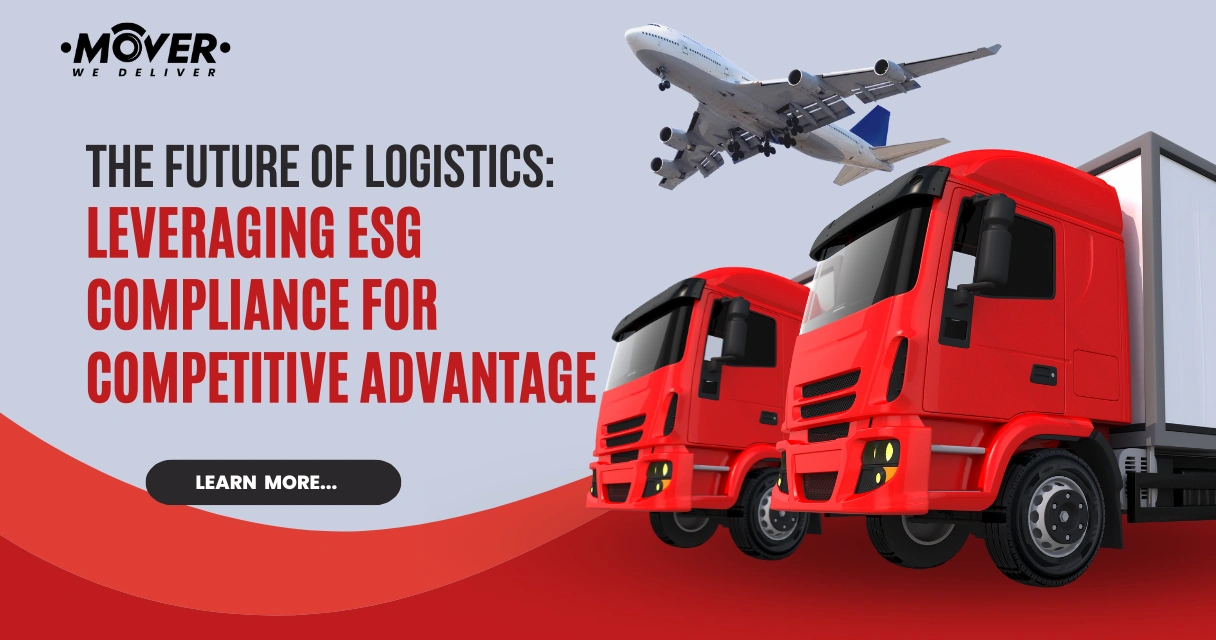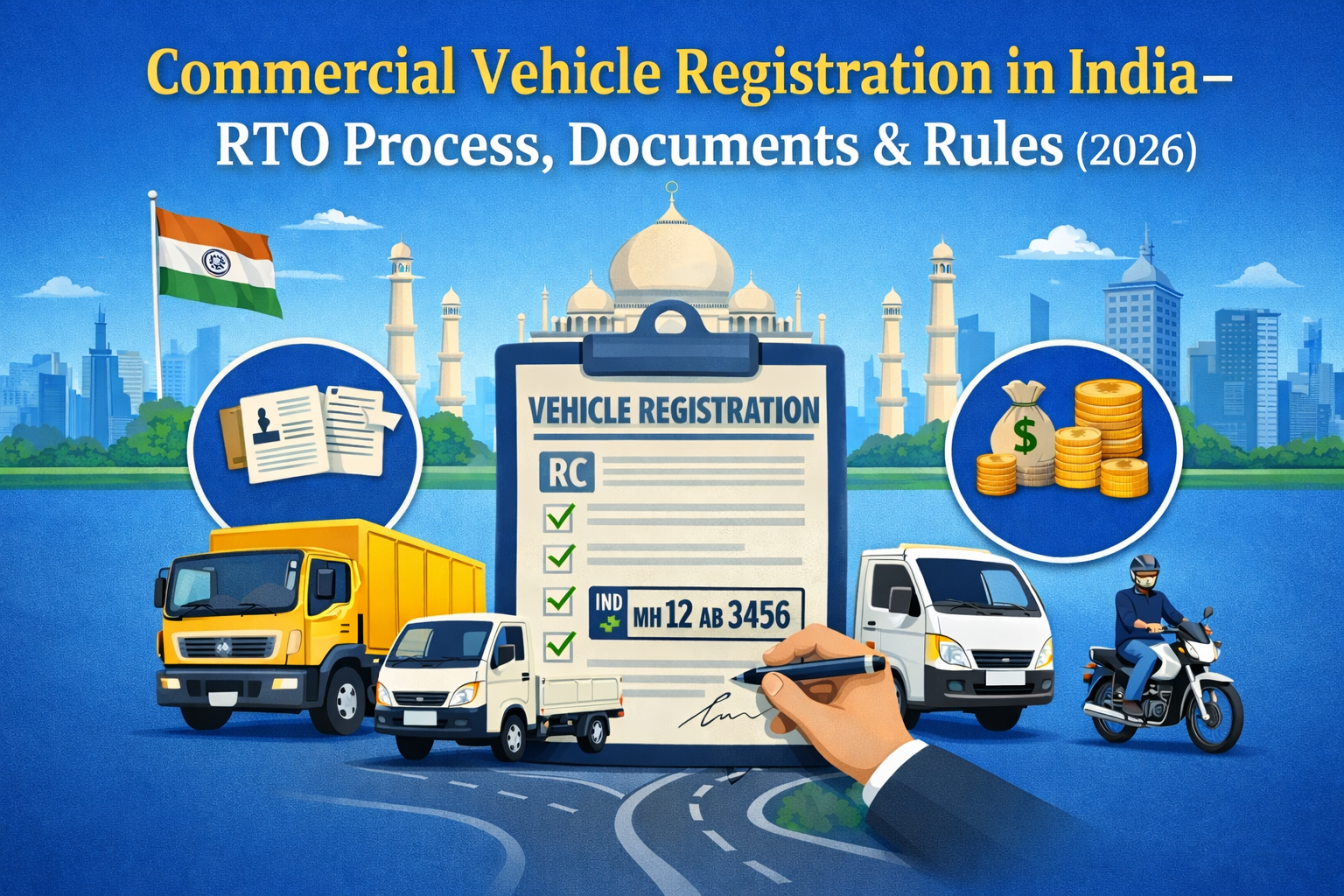The Future of Logistics: Leveraging ESG Compliance for Competitive Advantage
A shipping container doesn’t tell you its story. But if it could, you might hear about its carbon footprint before you learned what it carried. Strange, isn’t it? In an age where speed once ruled logistics, the quiet metric of responsibility is starting to decide who wins and who fades away.
You have probably already observed it: investors asking you about social impact, customers inquiring whether you source materials ethically, vendors seeking emissions data, suppliers requesting emissions data. This is no PR fad. It’s a filter. And ESG in logistics is quickly becoming the sorting hat for contracts, partnerships, and long term survival.
What Exactly Is ESG and Why It Matters in Logistics
Let us reduce ESG to its core before investigating contracts, competitive moats, and funding. ESG is Environmental, Social, and Governance. Beyond only financial results, it's a way to gauge how responsibly a business runs.
-
Environmental covers resource utilization, waste management, energy use in warehouses, emissions from your vehicles and your overall influence on the earth.
-
Social emphasizes your treatment of others, from fair labour standards for your drivers to community involvement and customer data privacy.
-
Governance covers ethics, openness and responsibility in decision-making including anti-corruption initiatives, board diversity, and adherence to laws.
ESG in logistics is not a hypothetical checklist. It's woven throughout everyday choices - which vehicle you buy, how you load them, how much garbage from packaging you generate and whether you work with ethical vendors. Its function is dual: lowering risk for clients and authorities as well as showing to the market that you are ready for a future in which speed and cost are as vital as accountability and sustainability.
Once you understand ESG’s scope, the rest of this discussion isn’t just about compliance - it’s about strategy.
When a Tender Isn’t About the Lowest Price
Last quarter, a mid-tier logistics company in Pune lost a contract worth crores. They weren’t underbid. In fact, their pricing was sharper than the winner’s. What tipped the scales? The competitor’s documented ESG score.
Think about that for a second. Your trucks might be on time, your warehouses might hum with efficiency - but if your ESG in the logistics file is empty, the decision might already be made.
A senior procurement officer from a retail giant told me bluntly - We can’t risk reputational damage from non-compliant partners. Price is easy to negotiate. A poor ESG record isn’t. That’s the new math. And this shift signals a deeper truth - competitive advantage is no longer just about operational performance, but about the values your operations reflect.
The Checklist You Weren’t Expecting
Before you roll your eyes at another ESG article, pause. This isn’t theory - it’s the foundation of how your business will be evaluated moving forward.
-
Map your carbon hotspots (fleet fuel use, warehouse energy, packaging waste).
-
Build traceability in your supply chain for ethical sourcing.
-
Train drivers on fuel-efficient habits.
-
Shift partial loads to shared transport models.
-
Set and publish annual ESG targets - and actually track them.
-
Partner with vendors who have documented ESG standards.
Each of these steps builds proof, and proof builds trust. You don’t need to implement it all at once, but every delay leaves room for a competitor to overtake you. Consider this your operational checklist for staying relevant in an industry that’s evolving faster than most leaders realise.
A Dialogue You Might Hear Soon
Client: Can you confirm your Scope 3 emission tracking covers our last-mile deliveries?
You: We track Scope 1 and 2.
Client: That’s not enough. Our board’s policy requires Scope 3 for compliance. We’ll have to work with another provider.
Awkward silence.
This isn’t a rare exchange - it’s the reality for logistics providers being vetted in 2025. When ESG metrics are embedded into your processes rather than bolted on at the last moment, these conversations turn from risk to opportunity.
The Quiet Market Signal
Here’s the part most people miss: ESG compliance doesn’t just open doors to new clients. It’s starting to influence financing costs. Several Indian banks are now piloting preferential lending rates for businesses with verifiable sustainability practices.
In practical terms: your warehouse retrofit or EV fleet expansion could be cheaper to finance simply because you can prove your logistics sustainability initiatives are reducing emissions. That’s not an environmental argument - that’s a profit argument.
And when cost of capital decreases for companies with robust ESG practices, the playing field tilts. Those who invest early in sustainability gain a structural edge, not just a marketing talking point.
How ESG Turns Into a Competitive Moat
To understand why ESG becomes a moat, you have to stop thinking about it as an annual report section. It’s infrastructure. Once built, it’s harder for competitors to replicate quickly.
In the last two years, three major logistics players in India used ESG alignment as part of their M&A pitch decks. Not as a side slide - as a central reason why they’d survive post-merger integration faster. Compliance wasn’t just about avoiding fines; it was about integrating processes across cultures without losing operational pace.
This shift is one of the most telling logistics industry trends shaping the sector in the next decade. And it’s a reminder: in a market where many can match your speed, price, or network, your ability to prove responsibility could be the only moat that lasts.
Culture Shift: From Top Floor to Loading Dock
ESG is not something you can approach just as a company policy. Drivers, loaders, warehouse supervisors - they need to see why it matters.
Story from Jaipur: a distribution hub introduced a fuel-use leaderboard for drivers. Monthly recognition for the top three. No monetary rewards, just public acknowledgment and a framed certificate. Within six months, fleet fuel consumption dropped by 9%. And yes, emissions followed.
This is where culture shifts from compliance to pride. ESG stops seeming like paperwork and becomes something to be proud of when frontline employees own the numbers. And that pride goes with every delivery, in ways performance reports can't record.
Hypothetical Scenario: Your Next Bid
Imagine you're pitching a new ecommerce newcomer seeking to oversee supply chains across panIndia.They are hoping for reach, speed, and adherence. Midway through your presentation, their COO asks for your waste management protocols.
You hand over a one-page summary showing:
-
Monthly packaging waste reduction rates.
-
Vendor audits for recyclable materials.
-
Partnerships with certified disposal services.
They nod. Contract signed within the week. Not because you were the only capable bidder - but because you were the only one who could prove logistics sustainability in action without a follow-up.
This isn’t a fantasy - it’s a scenario playing out in boardrooms across India. Those who prepare now will find themselves closing deals faster, with less negotiation over price, and more focus on partnership value.
Your ESG Advantage - If You Choose It
The future of logistics isn’t just about AI routing or drone deliveries. It’s about trust. And ESG in logistics is trust you can quantify. Every documented reduction in emissions, every verified ethical sourcing decision, every transparent report - it all builds a shield around your brand.
Clients will choose you because working with you lowers their own risk. Regulators will give you less grief. Banks might even smile at your loan application. And yes, competitors will wonder how you keep winning without dropping prices.
The question is simple: will you start building that advantage now, or wait until it’s the reason you lose your next deal? By the time the market makes ESG mandatory, the leaders will have already moved on to the next edge.
Also Read: 5 Best Truck Booking Apps in India for Goods Transportation (2025 Review)









